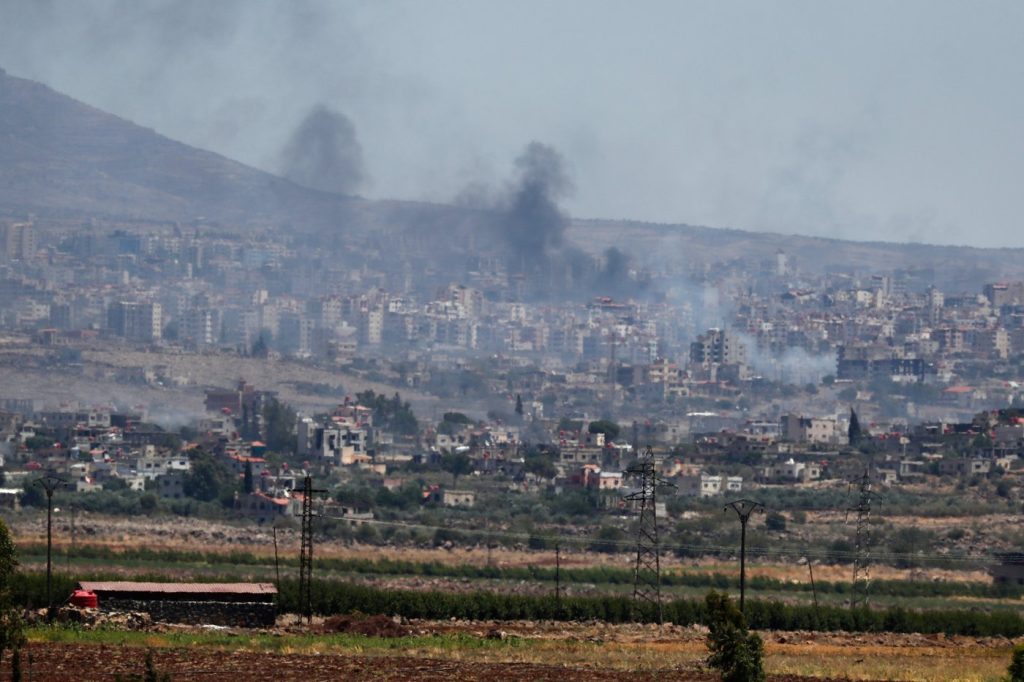DAMASCUS, Syria (AP) — Clashes intensified in the southern Syrian city of Sweida on Wednesday following the collapse of a ceasefire between government forces and Druze armed groups. The situation escalated further as Israel threatened to increase its involvement in support of the Druze religious minority, which forms a significant community in the region.
Syria's Defense Ministry accused local militias in Sweida of violating the ceasefire, which had been established just a day earlier. In response to the violation, Syrian army troops resumed military operations in the predominantly Druze province, stating, "Military forces continue to respond to the source of fire inside the city of Sweida while adhering to rules of engagement to protect residents and ensure the safe return of those who left the city back to their homes."
The recent violence follows a rebel offensive that ousted Syria's long-time leader, Bashar Assad, in December, ultimately ending a civil war that lasted almost 14 years. The aftermath of the conflict has seen new leaders struggle to consolidate control over the territory, facing skepticism from various religious and ethnic minorities. Tensions have risen significantly after a series of sectarian revenge attacks ensued after clashes between government forces and pro-Assad armed groups in March, leading to hundreds of civilian deaths from the Alawite religious minority, which Assad belongs to.
The current escalation began with exchanges of kidnappings and violence between local Sunni Bedouin tribes and Druze armed factions in southern Syria, which is a center for the Druze community. Government forces, attempting to restore order, have also entered into conflict with the Druze, and allegations have surfaced regarding security personnel conducting extrajudicial killings, looting, and the destruction of civilian homes.
No official figures have been released regarding casualties since Monday, when the Syrian Interior Ministry reported that 30 individuals had died. However, the U.K.-based Syrian Observatory for Human Rights reported over 250 fatalities as of Wednesday morning, including four children, five women, and 138 soldiers and security personnel. The observatory also indicated that at least 21 of the reported deaths were due to “field executions.”
In response to the clashes, Israel has conducted several airstrikes targeting convoys of government forces, asserting that its actions are aimed at protecting the Druze. The Druze, who began as a 10th-century offshoot of Ismailism (a branch of Shiite Islam), constitute a vital minority in Syria, with approximately half of the global Druze population living within the country. A considerable number of Druze also reside in Lebanon and Israel, particularly in the Golan Heights, occupied by Israel since the 1967 Mideast War.
In Israel, the Druze community is generally regarded as a loyal minority and often serves in the military. The Druze in Syria, however, find themselves divided in their response to the new ruling authorities. While some advocate for integration into the new government system, others remain wary and seek greater autonomy for the Druze region.
On Wednesday, Israeli Defense Minister Israel Katz indicated that the Israeli military would persist in attacking regime forces until they withdrew from the area, warning that responses would escalate if the regime did not heed the message. Prime Minister Benjamin Netanyahu emphasized Israel’s commitment to maintaining a demilitarized buffer zone in southwestern Syria and stressed the importance of protecting the Druze population.
Since Assad's fall, Israel has adopted a more aggressive stance toward Syria's new leadership, citing concerns over the potential presence of Islamist militants near its borders. Israeli forces have taken control of a U.N.-patrolled buffer zone in Syrian territory along the Golan Heights and have conducted hundreds of airstrikes against military sites across Syria.











